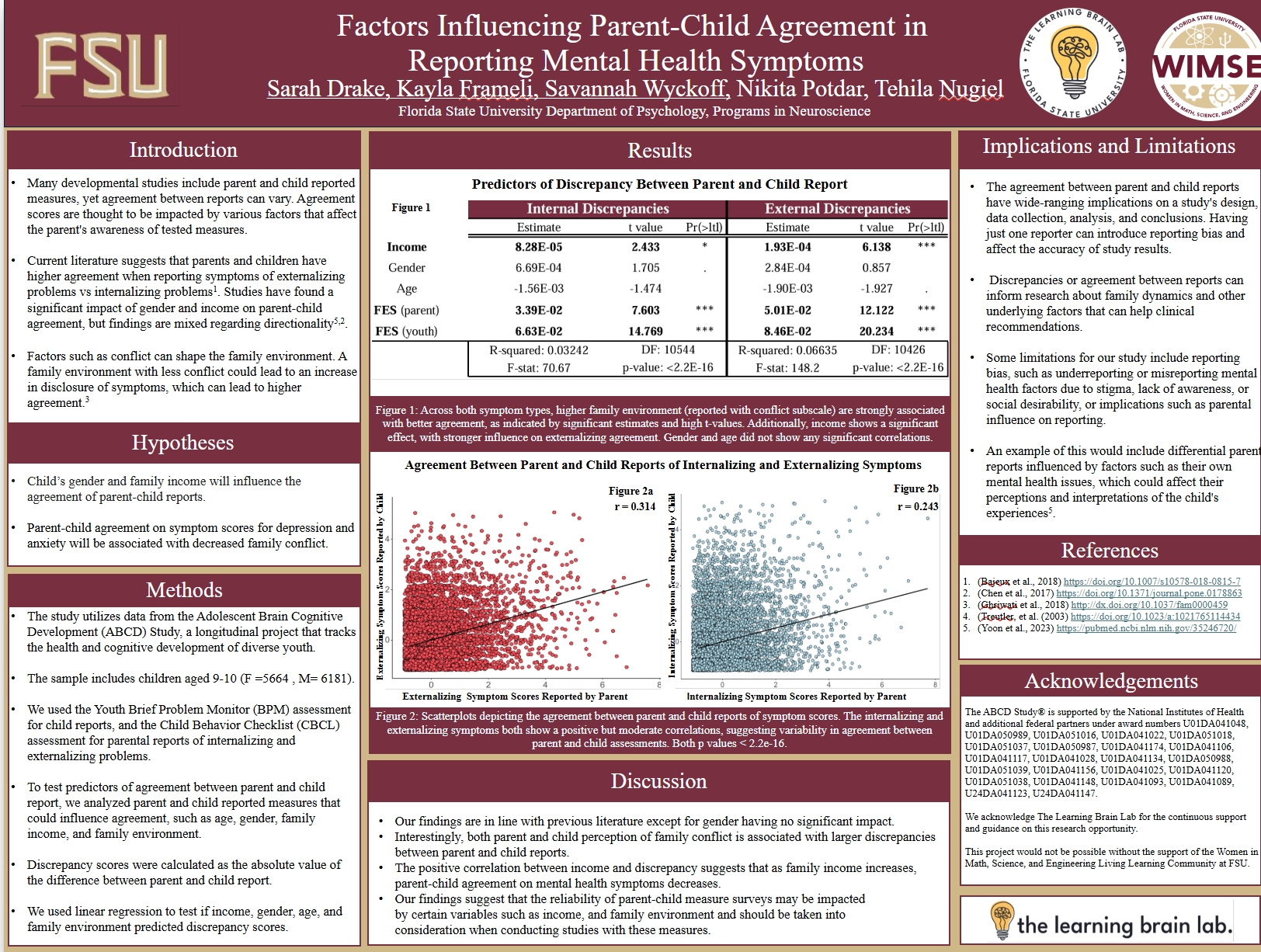Research Symposium
25th annual Undergraduate Research Symposium, April 1, 2025
Savannah Wyckoff Poster Session 2: 10:45 am - 11:45 am/ Poster #271
BIO
I'm a senior majoring in Biology and graduating this spring of 2025! My research interests broadly include mental health, the gut-brain axis, gut microbiome and epigenetics. Post graduation, I want to pursue a MD-PhD program and gain more research experience. Outside of being a student, I enjoy going to the medical examiners to shadow different cases, spending time with friends and family, training puppies to be service dogs, and going to the gym.
Factors Influencing Parent-Child Agreement in Reporting Mental Health Symptoms
Authors: Savannah Wyckoff, Tehila NugielStudent Major: Biology
Mentor: Tehila Nugiel
Mentor's Department: Psychology Mentor's College: Arts & Sciences Co-Presenters: Sarah Drake & Kayla Frameli
Abstract
Many developmental studies use parent and child reported measures, yet correspondence between reports can vary. Measures like anxiety and depression tend to be more difficult for parents to report accurately, as internalizing symptoms are not easily observable. The purpose of this investigation is to evaluate the agreement between parent and child reports using the parent-reported Child Behavior Checklist (CBCL) and shorter version of the CBCL, the child-reported Behavior Problem Monitoring (BPM) that measure internal and external symptoms. This study will examine how factors such as the child’s gender, family income, as well as family conflict (measured by the Family Environment Scale) influence the agreement between parent and child reports. Family conflict will be measured using parent and child self-report in the Family Environment Scale. Our research utilizes data from the Adolescent Brain Cognitive Development (ABCD) Study, a longitudinal project examining the health and cognitive development of over 11,000 socio-demographically diverse youth. To assess agreement between parent and child reports, we will correlate the two, and a difference score will be calculated to measure discrepancies. We hypothesize that child gender and family income will influence the agreement of parent-child reports, based on prior literature which reveals mixed findings regarding their impact on the degree of agreement. We also hypothesize that parent-child agreement on symptoms will be associated with decreased family conflict. By identifying patterns in parent-child agreement, we can inform future research on factors that influence reporting accuracy, leading to more reliable mental health assessments for youth.
Keywords: Agreement, Symptoms, Mental Health


